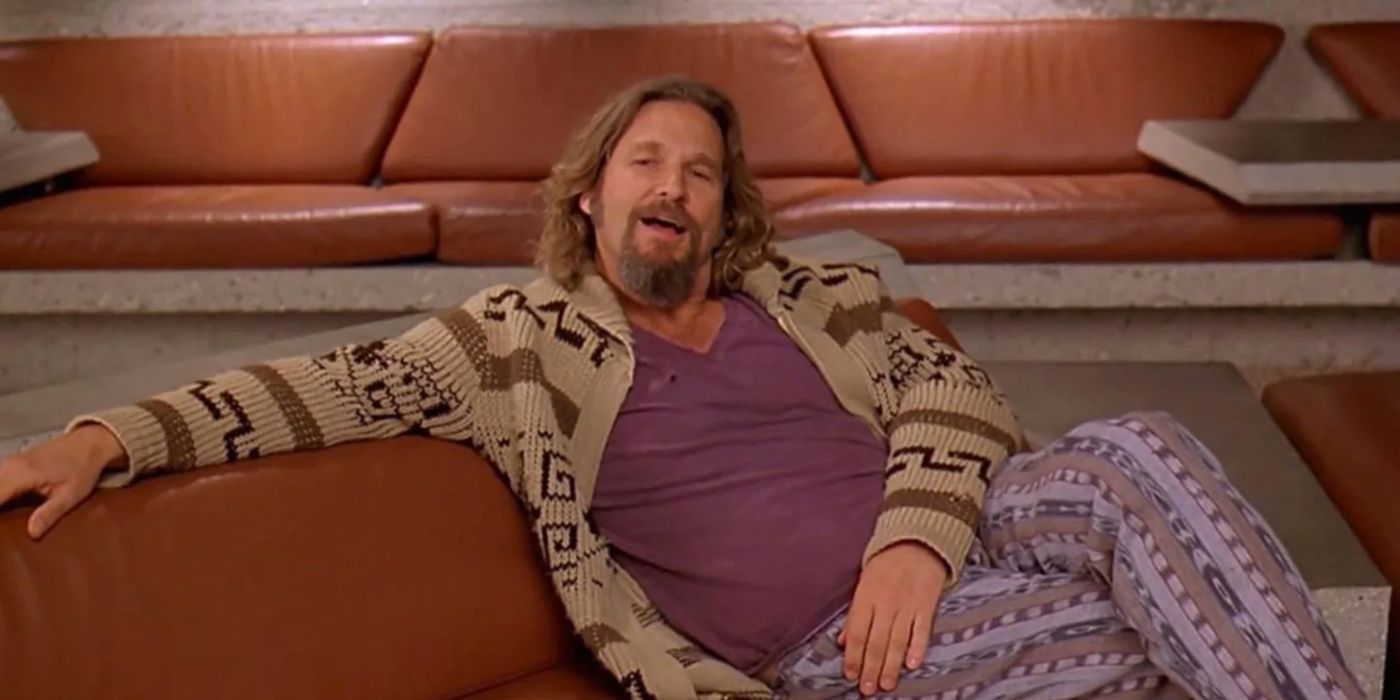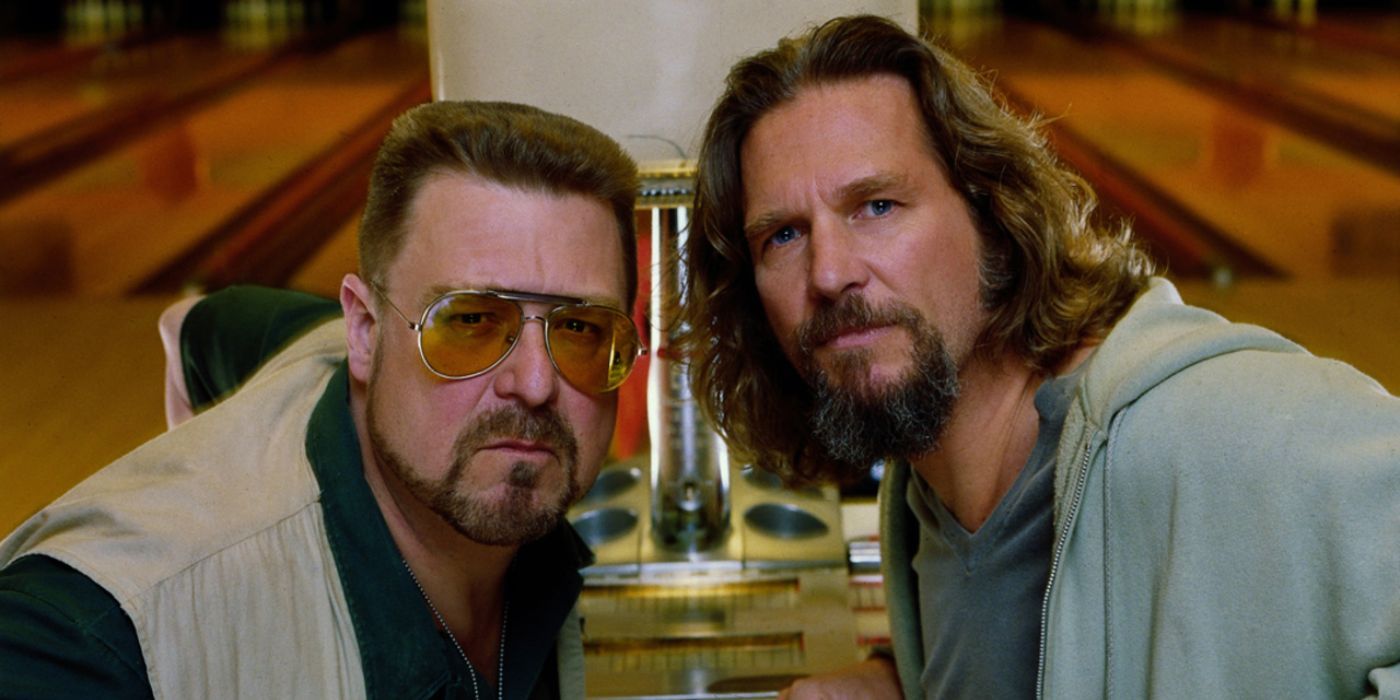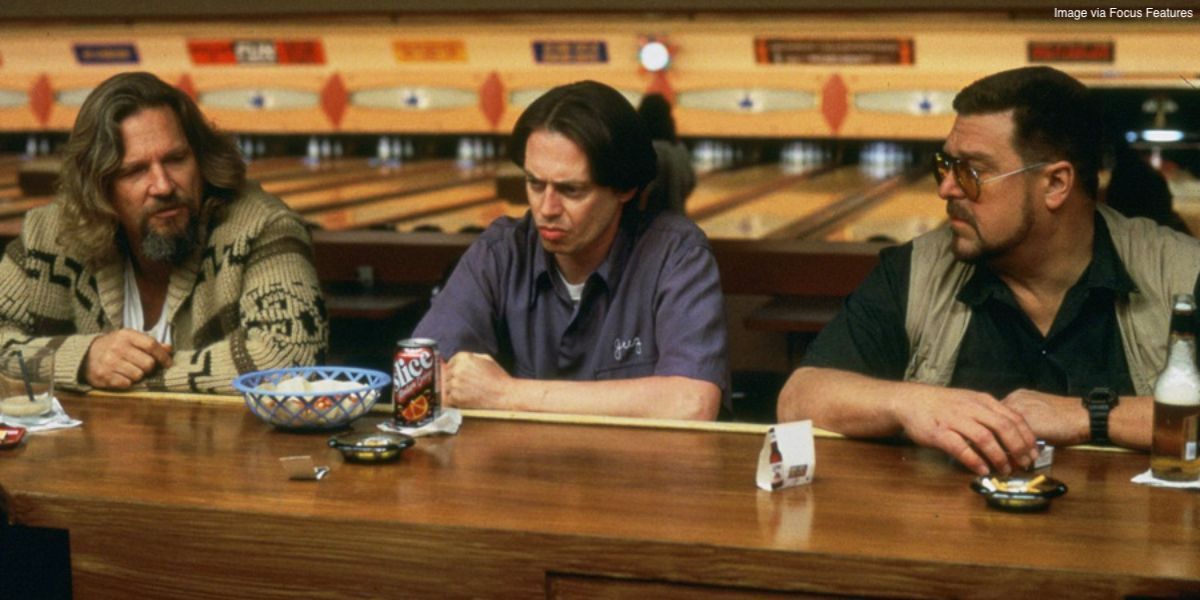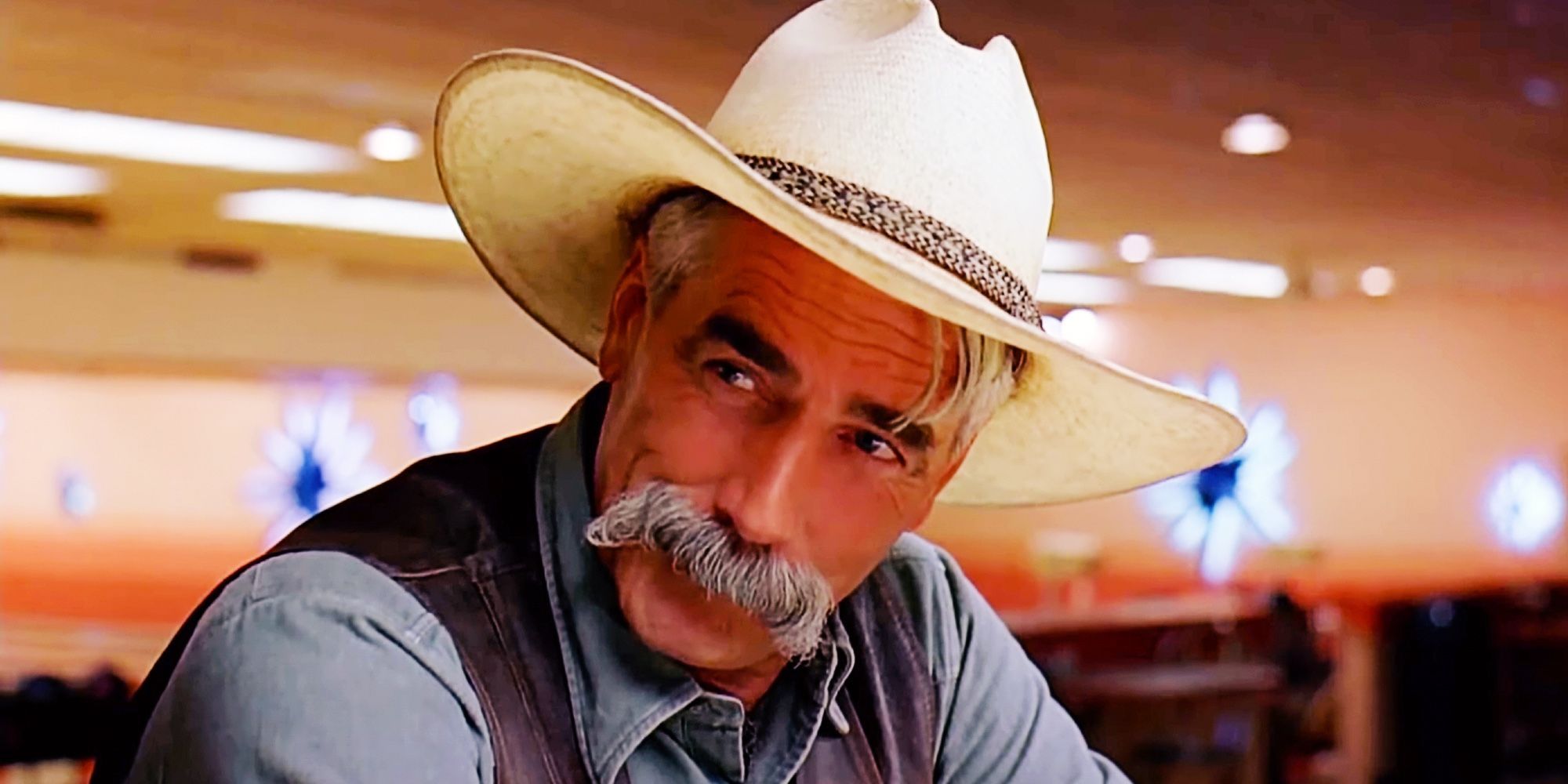The Big Picture
- The Big Lebowski cleverly disguises its infusion of film noir, westerns, and Hollywood history as a stoner comedy, resulting in a cult favorite.
- The film features countless references to American and Hollywood history, adding to its replay value and cult status.
- The Coen Brothers' film explores the underlying degrees of nihilism in film noir, symbolized by the circular nature of life and the lack of character development.
After reaching extraordinary critical acclaim with Fargo in 1996, every film that was followed by Joel and Ethan Coen would be met with lofty expectations. Their Academy Award-winning snowy crime-gone-wrong drama was a groundbreaking riff on a familiar template of crime dramas with the Coens' idiosyncratic dialogue and tone. In 1998, the brothers used their proverbial blank check to lean into their uniqueness as artists even more thoroughly with The Big Lebowski. Its initial reviews were quite mixed, as a film surrounding the life of a slacker in Los Angeles was seemingly viewed as a step down from the Coens' prestigious bid with Fargo.
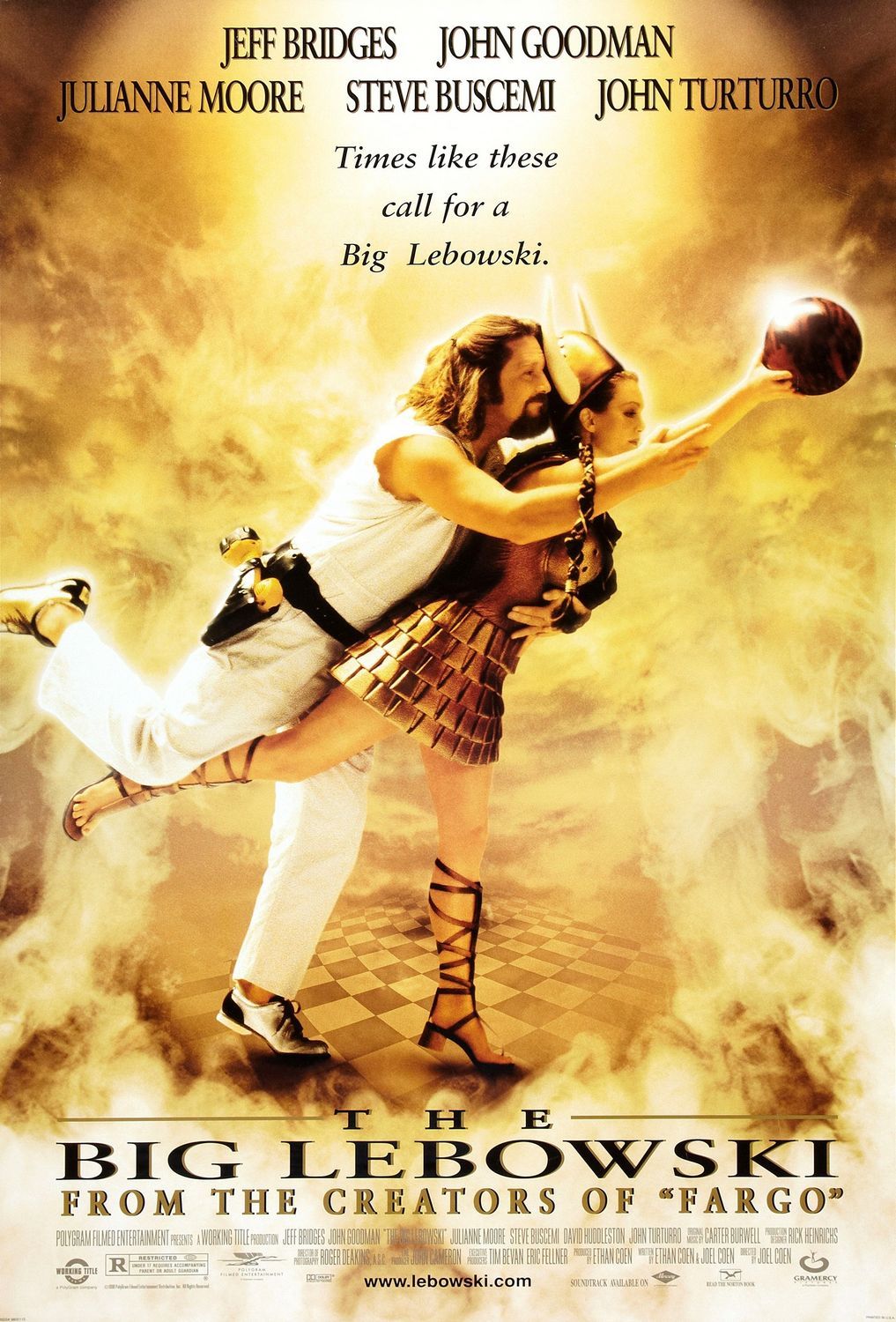
The Big Lebowski
Jeff "The Dude" Lebowski, mistaken for a millionaire of the same name, seeks restitution for his ruined rug and enlists his bowling buddies to help get it.
- Release Date
- March 6, 1998
- Director
- Joel Coen , Ethan Coen
- Cast
- Jeff Bridges , John Goodman , Julianne Moore , Steve Buscemi , David Huddleston , Philip Seymour Hoffman , Tara Reid , Peter Stormare
A film like The Big Lebowski, with its particular sense of humor and extensive symbolism, was destined to become a cult favorite. The more this cult classic widened its influence in pop culture in the 25 years since its release, the more profound the true analysis of the film has become appreciated, notably relating to how Lebowski disguised its infusion of film noir, westerns, and Hollywood history as a stoner comedy.
The Film Noir Influences of The Big Lebowski
The Coen Brothers were inspired by the works of Raymond Chandler, the author behind the detective stories of Philip Marlowe (The Big Sleep, The Long Goodbye), when writing The Big Lebowski. Joel stated that the downbeat attitude of "having a hopelessly complex plot that’s ultimately unimportant" that is evident in Chandler's books was influential to the characters and story of his film. Jeffrey Lebowski, or "The Dude," (Jeff Bridges) as what people call him, is a postmodern take on the classical Chandler-esque private eye. He will never be confused for Humphrey Bogart's portrayal of Marlowe in The Big Sleep or Sam Spade, another iconic noir detective canonized by Bogart in The Maltese Falcon. Both characters manage to maintain a stalwart composure and presence amid a sprawling investigation that the audience is equally incapable of following along with.
The Dude is the embodiment of a viewer who is watching Howard Hawks' The Big Sleep and cannot comprehend an ounce of the overall narrative. Within the life of the story, conversations that the characters engage in are directionless. Every common utterance of "huh?" and "uh" in the Dude's conversations is a perfect match for precise Coen dialogue and the haziness of the noir setting. The Coen's instinct to insert the life of a carefree stoner into a noir mystery is ingenious, but Lebowski should not be mistaken for parody. There is a sense of admiration towards the genre and the noir storytellers that became before the Coens, but without question, flavoring the genre tropes and character archetypes with the effect of smoking marijuana is quite savvy.
The haziness from marijuana and other substances is similar to the reactionary quality of watching a classic film noir. It is difficult to follow along, and you're not sure how anything on screen transpired. The basic plot synopsis, which is a stretch to define, follows a case of mistaken identity in which The Dude is attacked and threatened by a group of criminals who believe he is the millionaire with the same name, Jeffrey Lebowski (David Huddleston). This evolves into a ransom delivery to the criminals by The Dude to secure the release of Lebowski's kidnapped trophy wife. This plan fails, but nothing consequential ensues in its aftermath. There is also an important bowling tournament with The Dude's friends, Vietnam War veteran Walter Sobchak (John Goodman) and Donny (Steve Buscemi), that is never shown to the audience. Then millionaire Lebowski's daughter, Maude (Julianne Moore), commissions The Dude to recover the ransom money that was never exchanged. Later on, The Dude is caught up in a plot with a pornography mogul. At one point, The Dude and Walter interrogate a teenager for supposedly stealing their money after finding his homework.
The Symbolism of Circles in The Big Lebowski
After the chaotic fever dream of a narrative wraps up, The Dude ends up in the same place where he started, a carefree stoner who hangs out at the local bowling alley. His now-famous closing line of the picture, "The Dude abides," is the unassuming thesis of The Big Lebowski. The Coens identified the underlying degrees of nihilism at the core of film noir, so much so that a group of nihilists drives one of the various intersecting plots in the film. Nothing changes or ultimately matters in the film's world. This is a conclusion that can be manifested by a traditional private eye protagonist in a Chandler or Dashiell Hammett novel or a dedicated user of marijuana. The film's interpretations of the noir narrative tie into the Coens' symbolism of the circle. Spherical and round shapes are fixated on throughout the movie, including bowling balls rolling down the lane and the tumbleweed from the opening narration rolling through the desert and an empty street in Los Angeles. The circular nature of life indicates these characters, because of their bumbling and moronic tendencies, did not learn anything along the way. This thematic device can be traced back to many Coen Brothers films.
The Countless References to American and Hollywood History in The Big Lebowski
The metaphorical and historical details that are packed into the story and the visible screen are endless and are a vital factor to the replay value and cult status of The Big Lebowski. Other assorted quirks from the Coens that stand as callbacks to film noir include the supermarket location (see Double Indemnity and Robert Altman's Long Goodbye) and the femme fatale archetype in Maude that overtly radiates sexuality. Film noirs rose in prominence in the 1940s in the aftermath of World War II, when filmmakers sought to expose the dark underbelly of America that was suppressed by optimistic nationalism. The status of America in a post-war environment is examined similarly by the Coens. Jeffrey Lebowski is a veteran of the Korean War and is now a successful businessman with an abundance of wealth. Walter is a veteran of the Vietnam War and is still resigned to violent tendencies and stuck seemingly without any employment. The Dude's relationship with the rich Lebowski is representative of the Reagan Americana that expects exceptionalism via capitalist prosperity and pulling oneself by their bootstraps, with The Dude seen as the slacker of Generation X in the eye of the hard-working American of the Greatest Generation.
The Big Lebowski can be deciphered as a neo-western just as much as a neo-noir. The sun-baked L.A. setting perfectly complements the meandering essence of The Dude as he stumbles across various authority figures, from business tycoons to local police officers. In a fashion only the Coen Brothers can pull off, their film is embedded with scattered references to Hollywood history. Characters were based on numerous eccentric figures in the movie industry that the Coens met along the way. The Dude was loosely based on Jeff Dowd, a Hollywood producer and political activist. Walter Sobchak is vividly modeled after outlandish writer, director, and script doctor John Milius. A showstopping dream sequence after The Dude drinks a spiked White Russian is a direct homage to the fantastical works of musical director Busby Berkeley.
What makes The Big Lebowski still endearing and rewatchable 25 years after its release is the Coens' accessibility as artists. There is a basic, surface-level entertainment value in all of their movies that any viewer can enjoy a Coen Brothers film without analyzing the minutiae of the text. This film is so innately hilarious that the references to film noir and American history can be naturalistically appreciated when revisited. The Big Lebowski invites viewers to treat the film like an empty palette and interpret whatever entices them. Despite the film being about an endless mystery, the Coens crafted it with such preciseness and command of its tone that it dares the viewer to dissect its face value. By utilizing their unique voices to invert and exploit the framework of a classic genre, The Big Lebowski is perhaps the pinnacle of the Coen Brothers' abilities.
The Big Lebowski is available to stream on Netflix.

